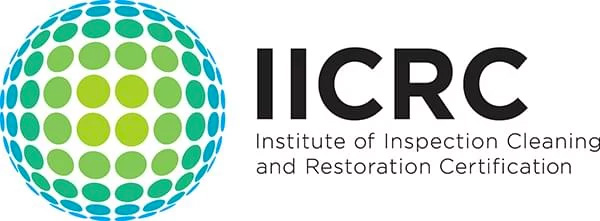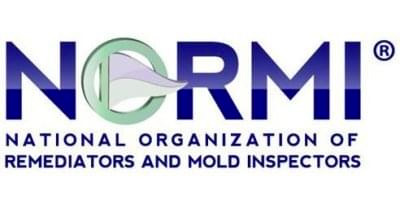Why Test For Mold?
Testing for mold in your house can tell you if you have a problem that needs tending. Mold tests can also help you find hidden mold, identify what species of mold is in your home and measure your indoor air quality.
It is sometimes called “The Silent Killer”.
While that title may sound a bit extreme, mold is undoubtedly one of the worst home invasions a homeowner can have. Mold can cause eye irritation, wheezing or coughing, throat irritation, and nasal stuffiness. In some cases, it can also cause severe skin irritation.
For people with mold allergies, the reactions are even more severe.
Mold has many ways to get from outdoors to indoors:
- It can enter your home through vents, windows, doorways, and air conditioning systems
- It can also attach itself to pets, bags, shoes, and clothing and be transmitted and carried indoors
Mold testing can be done by swab testing or air sampling. The difference is:
- Air testing is done to find hidden mold
- Swab testing is usually done to surfaces that already appear to have a problem
When To Test For Mold
If you notice these things, you should definitely test for mold.

- Whenever you smell a musty or moldy odor
- If you or another member of your household have a health condition that can be worsened by mold. Examples include immune system disorders, respiratory disorders, severe environmental allergies, or asthma.
- You or another member of your household have symptoms of mold-related health problems. Such problems include unexplained fatigue, unexplained rashes or hives, wheezing, coughing, frequent headaches, chronic sore throat, and chronic sinus infections.
- You discover mold in one area of your home. Mold generally spreads quickly, so if you have it in one part of your home, it’s advisable to test the other parts.
- Your home has recently been flooded. More often than not, mold starts to grow following a flood
- Whenever unusual stains start to appear on furniture or building material
- Whenever you find a leak that has been present for more than 24 hours
8 Reasons For Mold Inspections And Testing
1. To Support A Legal Case
To support a legal action against a landlord, for example, a plaintiff or a lawyer typically requires objective evidence of mold exposure.
2. To Check For Mold After A Flood
Flooding can occur in offices or homes due to failure with plumbing fixtures or breaks in plumbing lines. Once the flooding is over, it’s important to test for mold to make sure that none has grown as a result of the flood.
3. To Confirm The Absence Of Mold When Selling Your Home
In many states, laws require that sellers disclose information regarding past or present mold problems in the home. Where there are no mold laws, a buyer may just want to make sure that the home has no mold problems.
.jpg)
This may be as a result of a bad experience with mold in their previous residence.
4. To “Clear” A Remediation
This is to show that all mold is gone after remediation. Mold remediation is focused on returning mold levels back to normal, natural levels. A mold remediation certificate shows future real estate transfers that mold was effectively and properly removed.
5. To Uncover Hidden Mold
Hidden mold is a serious problem because it will continue to spread. When there is no visible mold growth, testing for it is the best solution.
6. Establish The Levels Present
The different stages of mold damage are usually divided into four levels. The first level indicates minimum mold contamination, while the fourth level indicates a serious degree of contamination.
7. Identify The Type Of Mold Present
Mold comes in all different forms, and some can present more serious issues than others.
The following are some of the more common types of mold that can present serious health issues for people if left untreated:

- Ulocladium
- Trichoderma
- Serpula Lacrymans
- Stachybotrys Chartarum
- Penicillum
- Fusarium
- Cladosporium
- Chaetomium
- Aureobasidium
- Aspergillus
- Alternaria
8. Set The Parameters For Remediation
Many remediation companies require the input of a testing company prior to undertaking or authorizing mold remediation.
Questions To Ask a Mold Testing Company
Now that you have enough reason to get professional mold testing in your house, the next step is to get a qualified mold detection company to get the job done.
Just because someone advertises as a qualified mold tester does not guarantee that they actually know what they are doing. To help you hire the right company for the job, here are some questions to ask:
How Do You Perform Mold Testing?
A good mold testing company will also include a visual inspection as well. That includes doing moisture measurements and looking for water damage.
Are you a member of the Better Business Bureau, if so what is your rating?
Find out what their rating is by contacting their local Better Business Bureau.
How long have you been in the mold testing business?
You want to make sure they are experienced and that they will still be available when you need them later on.
What type of report should I expect from you?
Ask if they can send you a sample report or at least explain what you’ll be getting. Some companies just give you the laboratory data and don’t explain what it means or what to do next.
What is the turn-around time between the inspection and report?
A couple of days to a week is a reasonable time to expect the final report. You want them to have enough time to write you a good report, but not so long that you keep having to delay repairs.
How many mold samples will they take?
The number of samples depends on the size of your property. Some companies take one inside air sample and maybe one outside air sample.
Does the inspector have any certifications?
Good examples of certifications include Certified Microbial Inspector (CMI) and Certified Microbial Consultant (CMC).
Testing for mold is essential to verify the air quality safety in your home or workplace.
Remember, if you need to test for mold, ensure you hire a professional mold testing company that has the training and the experience to get you the facts you need.


